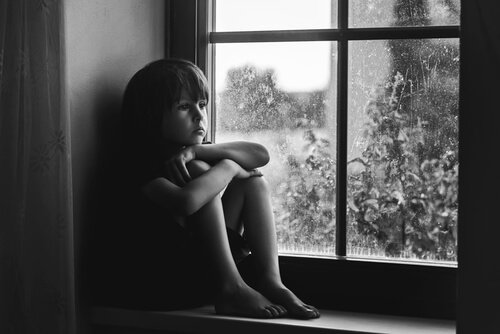The Importance of Socialization for Brain Development

Humans are social beings and need to be in contact with others in order to survive. Thus, humans can’t develop if they’re isolated. In fact, you may say that interacting with other people is the best way to fully develop the brain.
It’s very important to establish friendships because this is both positive for our mental health and will help keep the brain as active as possible. Thus, we can say that sociable people favor their brain health. By socializing, they protect their brain from cognitive impairment and dementia.
Recent biological anthropology studies show the importance of socialization in the brain’s evolutionary development. Without social relationships, we never would have become what we are today.
Unfortunately, many cases have shown what happens when someone spends the first years of their life isolated, such as cases of so-called feral kids or “wild kids”.
In this article, we discuss how socialization can benefit brain development and the negative effects of a lack of it.

Socialization and the origin of mankind
Human beings have very complex brains. Our brains allow us to develop a communication system through language. In addition, our brains allow us to make complicated decisions, create objects with our own hands, and even dominate other species and the environment around us.
According to Daniel White, a specialist in the evolution of the brain, socialization is what allowed this huge development to take place. He claims that life in society encouraged the evolution of our brain.
The different environmental and social conditions were the stimuli that helped the brain develop superior processes. This resulted in a brain with a greater ability to memorize things. Also, this allowed humans to use language.
We can appreciate just how important socialization is to brain development if we compare the human brain with that of other primates. The brain of a chimpanzee grows during gestation and their brain is almost fully developed when they’re born. Two years after being born, the chimpanzee brain reaches the size of an adult chimpanzee brain.
In human beings, the brain develops during gestation and beyond the first two years of life. Therefore, our brain reaches the size of an adult brain by the time we’re 7 years old. By this time, we’re ready for our first simple social interactions.
However, although it doesn’t keep growing, the human brain reshapes until we’re 25 years old. Socialization plays a very important role in brain development during this period.
The effects of a lack of socialization during childhood on the brain
A lack of socialization affects brain development in different ways. It’s so damaging that it impacts and delays brain development in general, especially in the first years of life. So, the absence of social relationships that expose humans to quality interactions not only affects mood and behavior, but also cognitive health and motor skills.
A lack of socialization has even stronger negative effects during childhood. In the first 10 years of life, humans acquire and perfect many superior psychological processes, such as language. To better understand these effects, we’re going to talk about two specific cases.
Genie was a child who was imprisoned by her parents until she was 13 years old. She didn’t have any type of emotional stimulation nor socialization opportunities. This prevented the child from acquiring language skills, so she only made certain sounds in response to external stimuli. Despite the fact that she was 13 years old when specialists started to study and treat her, she never managed to speak any complex language fluently.
Another similar case is that of feral child L’Aveyron in the 1800s. He was a 12-year-old child who was found in the Aveyron department of France climbing trees and running around naked. Just like Genie, he didn’t speak and even walked like a chimpanzee. His parents had abandoned him (or died when he was little), so he never socialized with anyone.
These two cases are specific examples of what can happen to a human being if they don’t socialize.

Socialization for the development of the brain
Socialization challenges the brain and keeps it active. It’s vital, especially in the more advanced stages of life, and can prevent mental impairment caused by low brain activity.
To reap these benefits, we must try to be as social as possible. We should interact with others through conversations, although writing is also a great option.
Those who tend to keep to themselves can try the following things to socialize more:
- Plan more gatherings with friends and family: Even long and periodic phone calls can have the same effects.
- Join a club or organization to do activities that you like and make new friends: You’ll keep your body and hands busy and your brain will stay active by socializing.
- Avoid social isolation: Go out, talk, and exchange ideas with people.
- Make friends who are older or younger than you: Older people can benefit from the mental and physical speed of young people. The latter can also learn new things from older people.
- Even being in a romantic relationship stimulates the brain in many ways, as long as the relationship isn’t toxic.
- Seek professional help if you start isolating yourself more: There are help hotlines and social centers that are ready to help you. Consulting a psychologist may also be a great option.
This text is provided for informational purposes only and does not replace consultation with a professional. If in doubt, consult your specialist.








